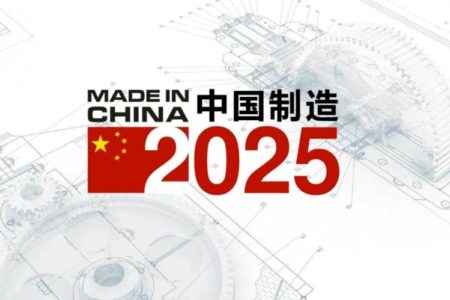November 14, 2019 – The rise of digital technologies is changing our perception of what is a nation today. I write a science and technology blog that transcends borders because of the medium in which it is published. Readers from more than 40 countries regularly visit these pages. The affinity with my readers gives me a sense of something greater than being solely aligned with my national identity. I feel a sense of techno-globalism through my blog, rather than being confined to a techno-nationalist perspective.
The term techno-nationalism appears to be a counter to the rise of the Internet and global telecommunications networks. More than 5 billion of us have become digital citizens, and if we are to believe the forecasts, nearly all of the remaining 2.5 billion will soon have the same digital access. Add to this the rise of social media platforms such as Facebook, and the international boundary lines that separate us seem less formidable. And yet we are witnessing, in the rise of populist and authoritarian leaders, a pushback against all of this connectivity.
At the same new technologies are being introduced that could have monumental impacts on the planet and us. The rise of artificial intelligence (AI) in its many forms and robotics, the growth of digital data, an emerging faster telecommunications paradigm called 5G, 3D printing and additive manufacturing, the Internet of Things (IoT), nanomaterials, and nanomanufacturing are significant disruptors to our existing world, to the nature of work, and our sense of order.
This technology revolution that is global in extent is a constant force for exponential and accelerating change. Our digital creations are putting every nation on notice. Just how relevant the concept of the nation will be in the future in a high-speed interconnected world where AI becomes indistinguishable from non-AI will be transformative for our global human society.
Robert Manning, a Senior Fellow at the Brent Scowcroft Center for Strategy and Security writes, “We are at a historical inflection point. The international rules-based economic order is under great strain and facing an uncertain future while populist nationalism is on the rise. At the same time, the world is on the threshold of an unprecedented, disruptive technological transformation.”
In the face of this deluge of digital mayhem, equivalent to the biblical flood, the nations of the world are reacting in very different ways, each attempting to create a version of techno-nationalism that creates walls to protect intellectual property, new technologies, scientific discoveries, state secrets, democracy, elections, and jobs. Nations are pushing back against the globalism of the World Wide Web in an effort to stymie foreign competition and ideas. In the United States, the federal government policy has been to erect trade barriers through tariffs, and walls and bans to block foreigners from entering the country. In China, the country has instituted a “Made in China” initiative and effectively erected barriers for foreign companies to enter its market. The government has gone even further turning its techno-nationalism into a way to control the social behaviour of its citizens, and stifling dissent. And finally, the country has used its vast financial assets to buy into other countries’ natural resources and industrial base to leverage Chinese technology and influence abroad.
Techno-nationalism is planting the seeds of the new arms race, one aimed at winning the future. “Made in China” has a 2025 deadline date. China mastering AI has a 2030 date. India has set a goal of 100% digital manufacturing by 2030. South Korea wants to master the hydrogen economy by the same year. And the United States has set a 2030 goal to be the predominant nation in advanced manufacturing, and in particular in technology for fighting wars.
Where the Internet opened up the digital world to all, techno-nationalism wants the opposite. The world the former fostered may soon become a relic of the past. There are lots of examples pointing in that direction. Russia plans to isolate itself from the Internet with its own homegrown version. Global positioning (GPS), another American invented technology that connected all of us, is now being replaced by local rivals from China, to Japan, to India, to Russia, and even the European Union.
What techno-nationalism is doing is returning us to an older time when mercantilism and globe-spanning empires were national policies. The implications of this trend represents an existential threat to the planet on many levels, first, because it is likely to create conditions for another world war, and second, because it will make mitigating climate change on a planetwide scale nearly impossible.









